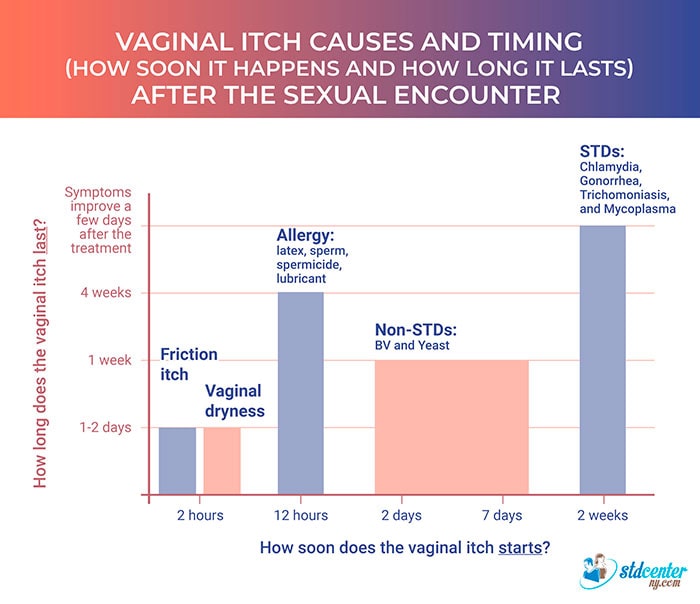Non-infectious causes
Friction during sex
Friction during sex from prolonged sexual encounters or inadequate lubrication or arousal before sex can cause post-sex itch. This is an example:
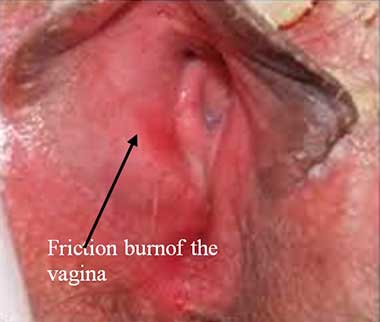
Timing: The itch can start in a few hours or the next day. It usually lasts a day or two and subsides gradually.
Vaginal dryness
Vaginal dryness is a common and painful condition that can affect people at any time in their lives. The most common causes are hormone level fluctuations (birth control pills or menopause) or medications.
This is how it looks:
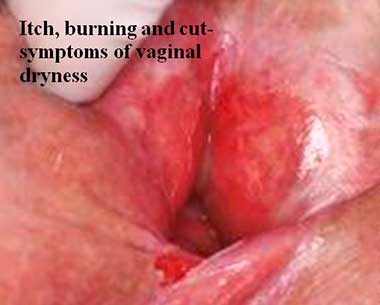
Timing: Since the person has baseline irritation of the vaginal area, it will be just more irritation of the same sort in a few hours or the next day. The worsening of the baseline symptoms lasts for a day or two.
Allergic reactions
Different agents that come into contact with the vagina- such as latex condoms, sperm, spermicide, and lubricant- can cause localized (vulva and vaginal) allergic reactions. Vaginal itch is one of the most common symptoms. Other symptoms may include redness and swelling.
[1, 2]
Vulvar Pruritus—Causes, Diagnosis and Therapeutic Approach
https://www.ncbi.nlm.nih.gov/pmc/articles/PMC7081372/
Female Genital Itch
https://pubmed.ncbi.nlm.nih.gov/29929595/
Example of allergic reactions of different severity.
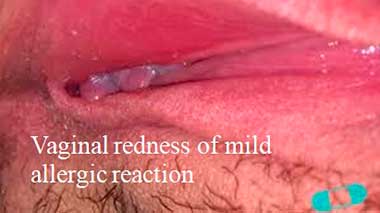
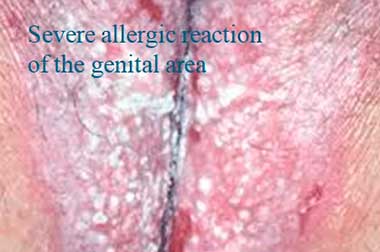
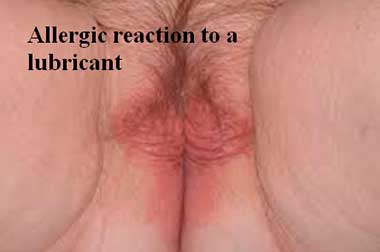
Timing: The symptoms can be delayed (starting within 12 hours and peaking at 48-72 hours) or immediate (starting in minutes). The more exposure to an agent there has been in the past, the faster and more severe the reaction. Most reactions are delayed.
Latex allergy
A reaction to the proteins in natural rubber latex causes latex condom allergies. Females are more affected than males.
Sperm allergy
It is rare to have an allergic reaction to sperm protein.
Symptoms include redness, itch, and swelling, usually very mild.
Reaction to spermicide
It is a reaction to the nonoxynol-9, which can irritate the sensitive vaginal tissue. The symptoms include redness, itch, dryness, and swelling.
Reaction to lubricant
Lubricants that contain glycerin, glycols, petroleum, and parabens can cause allergic reactions and itch in the vagina area.
Non-STD infection causes
Sexual contact can change the Ph of the vagina,
How?
✓ Semen has higher Ph than the vagina and can raise Ph temporarily. It creates an environment where harmful bacteria can grow.
✓ Lubricants can change the vaginal Ph as well.
✓ Friction during sex can irritate the vaginal tissue and makes it more vulnerable to infection.
and the balance of pathogens in the vagina is disrupted, leading to two commonly known conditions:
Yeast infection and Bacterial vaginosis. Both conditions can cause vaginal itch in addition to other symptoms such as redness, swelling, and discharge.
Timing: Typically, itch symptoms for BV and Yeast are not immediate and take 2 to 7 days to appear. It usually lasts for a week or two or until it gets treated.
Vaginal Yeast infection
The most common type of fungus that causes yeast infections is Candida albicans. Itch is the most common and early sign of yeast infection. Over time, redness and swelling of the vagina as well as clumpy white discharge are visible.
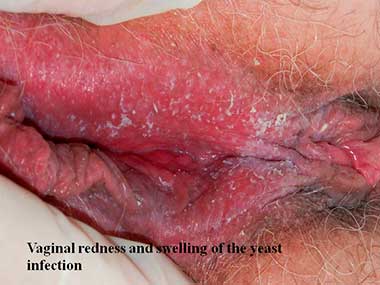
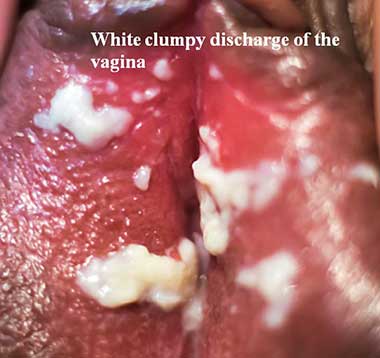
BV (Bacterial vaginosis)
BV is caused by an overgrowth of bacteria: Gardnerella, Prevotella, and Mobilincus. In addition to the itch—the initial and might be the only symptom—BV can also present with a fishy smell and thin greyish discharge.
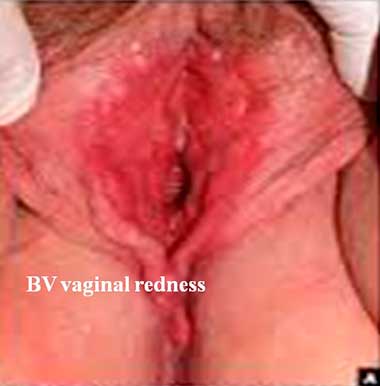
STD causes
Some sexually transmitted infections, such as chlamydia, gonorrhea, trichomoniasis, mycoplasma, herpes, and genital warts, can cause vaginal itch.
Timing: Typically, an STD’s itch is not immediate (unless it is herpes) and takes a few weeks to develop.
Chlamydia, Gonorrhea, Trichomoniasis, and Mycoplasma
Chlamydia, Gonorrhea, Trichomoniasis, and Mycoplasma caused by corresponding bacteria. It is usually a late itch that progresses over time.
In addition to the itch symptoms, other symptoms such as increased vaginal discharge, smelly discharge, and pelvic pain can appear.
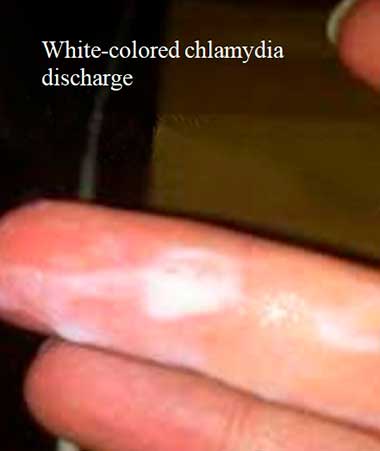
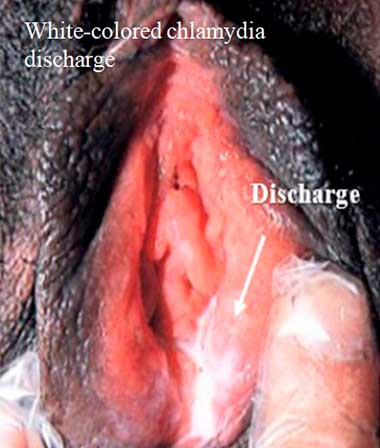
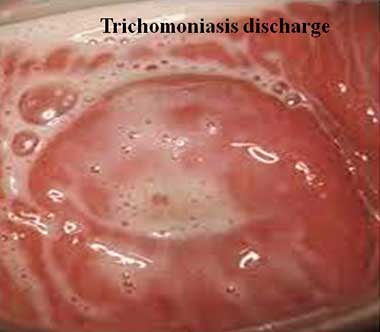
Herpes
Herpes is one of the STDs that can cause early vaginal itch: It can be as early as the next day. However, the herpes itch is mild and not long-lasting. The itch turns into burning (pain) in a day or two, and bumps and blisters should appear.
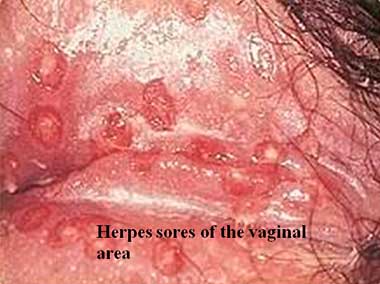
Warts
Warts might take a long time to appear and can cause mild itchiness. Small bumps can also be present.
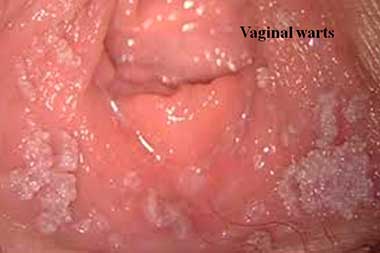
Source
-
Vulvar Pruritus—Causes, Diagnosis and Therapeutic Approach
https://www.ncbi.nlm.nih.gov/pmc/articles/PMC7081372/ -
Female Genital Itch
https://pubmed.ncbi.nlm.nih.gov/29929595/
